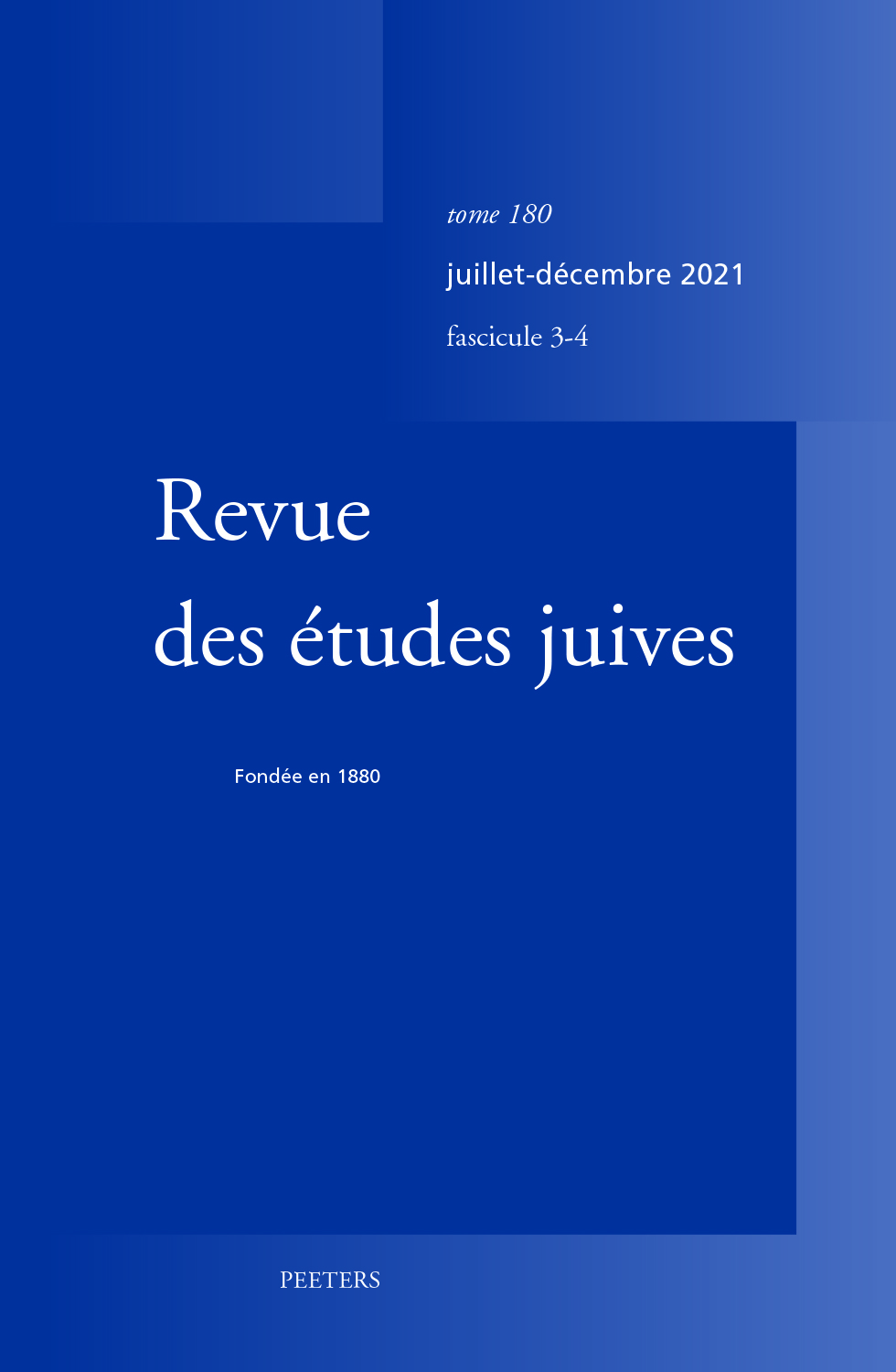 previous article in this issue previous article in this issue | next article in this issue  |

Preview first page |
Document Details : Title: La loi juive comme rempart face à l'antisémitisme moderne Subtitle: Le rabbin David Tsvi Hoffmann (1843-1921) entre Science et Apologie Author(s): BLOCH, Emmanuel Journal: Revue des Études Juives Volume: 177 Issue: 1-2 Date: janvier-juin 2018 Pages: 173-199 DOI: 10.2143/REJ.177.1.3284870 Abstract : L’objectif de cet article sera d’analyser, pour la première fois dans un cadre universitaire, un livre rédigé par un prestigieux rabbin allemand de la seconde moitié du XIXe siècle, David Tsvi Hoffmann (1843-1921): Der Schulchan-Aruch. Écrit en allemand, l’ouvrage avait pour objectif affiché de défendre la loi juive, laquelle était alors régulièrement vilipendée par la critique antisémite. Mais il sera démontré que les enjeux du livre étaient en fait bien plus vastes, et touchaient aux fondements de l’ethos religieux judéo-allemand. Après avoir restitué le contexte de l’œuvre et mis en exergue le dilemme présenté alors aux dirigeants orthodoxes allemands, nous examinerons tour à tour les objectifs fixés par Hoffmann à son ouvrage, sa manière de présenter son argumentation, ainsi que ses conclusions principales; finalement, dans le but de faire ressortir la spécificité de l’ouvrage, nous comparerons l’approche de Hoffmann à celle de quatre autres penseurs éminents de la même époque, lesquels furent tous confrontés au même problème. The goal of this article will be to analyze, for the first time in an academic setting, a book penned by a prestigious German Rabbi of the second half of the 19th century, David Tzvi Hoffmann (1843-1921): Der Schulchan-Aruch. Written in German, the book’s objective was to defend the Jewish Law, which was then regularly reviled by the anti-Semitic critique. But it will be shown that the book’s stakes were much more significant, and touched upon the very foundation of the religious Judeo-German ethos. After having reconstructed the immediate context of the work and highlighted the moral dilemma then presented to the German Orthodox leaders, we will successively examine the objectives set by Hoffmann for his work, his manner of presenting his arguments, as well as his main conclusions; finally, in order to emphasize the book’s uniqueness, we will compare Hoffmann’s approach to that of four preeminent thinkers of the same period, which were all confronted by the same issue. |
|


